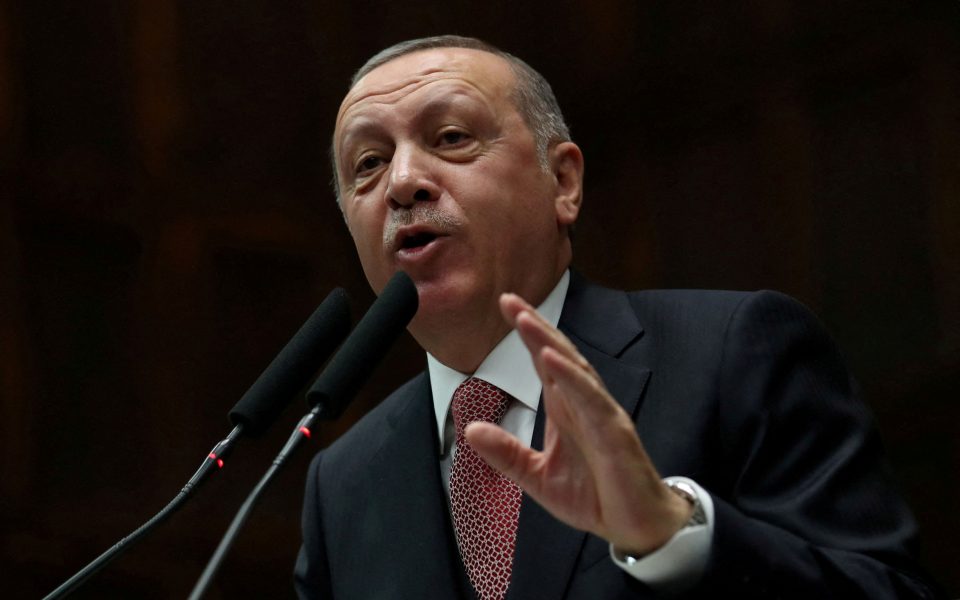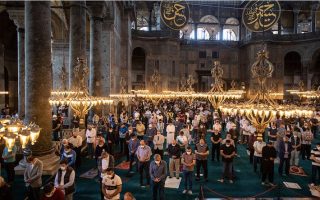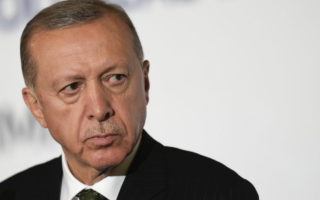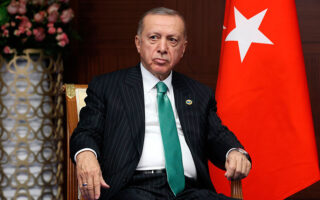A collective dream of violence

Turkish President Recep Tayyip Erdogan’s compulsive repetition of the slogan “We will come in the night,” as a threat against Greece, has become quite quaint. And predictable. It follows every failure to carry out some aggressive initiative (as in another invasion of Syria), when some foreign entity (such as the United States or the EU) criticizes his policy, or when he fails to impose his will on others.
It appears that the Greeks serve as an ideal target. By attacking Greece, Erdogan can depict himself as confronting the United States and the EU, while not challenging them directly, and at the same time he can remind his audience that 100 years ago Turks defeated Greeks in a war. Up to this point, we can understand the need for Turkey to bully a neighbor that it considers the “spoilt child” of greater powers and an obstacle on its road to imperial restoration.
However, the mechanical repetition of “We will come in the night” resembles the rambling of an old uncle at family gatherings who keeps saying the same thing, over and over: Those who do not see him often will notice that his behavior is weird, while his closest family members have got used to him and pay no attention.
This is where Erdogan’s compulsion becomes significant. Those closest to him – Turkey’s other political forces and officials in his government and state apparatus – seem to find it natural that their president threatens neighbors with night raids on a regular basis. On the other hand, if the aforementioned uncle kept threatening the neighbors with violence, he would have been sectioned by his family for his own (and their) safety.
As Turkey’s autocratic regime establishes itself more firmly on the bases of Islam, nationalism and the militarization of foreign policy, the opposition parties appear unable to propose an alternative vision. On the contrary, the nationalistic and bigoted outbursts by some opposition parties reveal that, in his particular way, Erdogan is expressing a collective mentality.
At the same time, he reinforces that attitude, as those who could disagree with him are either persecuted or silent. And so, the Greeks constitute the “ideal other” for Turkey, the reasons for some of today’s setbacks and easy prey on the road to glory. And Turkey remains trapped in a mentality in which threats and violence are deemed acceptable in politics at home and in the world.





